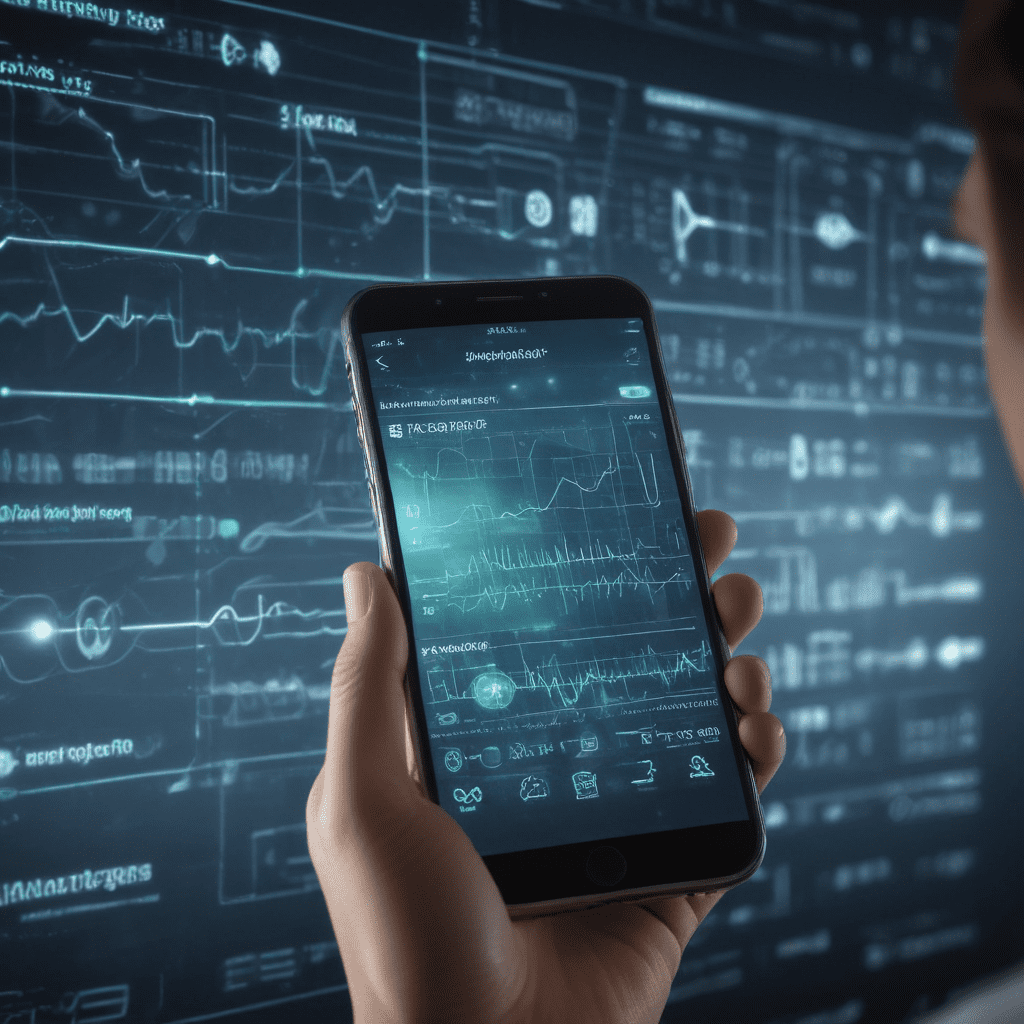1. Understanding Smart Retail and its Impact on the Retail Industry
Smart retail leverages technology to enhance the shopping experience, leading to increased efficiency, convenience, and personalization. Smart technologies, such as mobile apps, AI, and IoT, provide retailers with valuable insights into customer behavior, enabling them to tailor their offerings and improve operations.
2. The Role of Mobile App Development in Smart Retail
Mobile apps play a pivotal role in driving smart retail initiatives. They provide a seamless bridge between customers and retailers, empowering customers with real-time information, personalized recommendations, and convenient payment options. By leveraging smartphone capabilities such as GPS, cameras, and sensors, retail apps offer immersive experiences that blur the lines between the physical and digital retail worlds.
3. Essential Tools for Mobile App Development in Smart Retail
To develop compelling smart retail mobile apps, retailers require an array of specialized tools. These tools streamline the development process and enhance app functionality.
a) Development Platforms
Robust development platforms such as React Native and Flutter enable cross-platform app development, reducing development time and costs. They provide a wide range of pre-built components and libraries, accelerating the app creation process.
b) App Testing Frameworks
Rigorous testing frameworks ensure app reliability and performance. Tools like Appium and Espresso allow developers to thoroughly test app functionality across various devices and operating systems, ensuring a seamless user experience.
c) Payment Gateways
Secure and reliable payment gateways are crucial for processing in-app purchases. Stripe, PayPal, and Apple Pay integrate seamlessly with retail apps, enabling frictionless and secure transactions.
6. Solutions for Enhancing Smart Retail Operations
Mobile app development can provide innovative solutions to streamline and enhance smart retail operations. These include:
a) Mobile Point-of-Sale (POS) Systems
Mobile POS systems replace traditional cash registers, enabling sales transactions to be processed anywhere within the store. They integrate seamlessly with inventory management systems, providing real-time updates and reducing checkout queues.
b) Inventory Optimization Tools
App-based inventory optimization tools track product levels in real-time, preventing stockouts and minimizing waste. They provide insights into product performance and demand patterns, enabling retailers to make informed decisions on inventory management.
c) Customer Relationship Management (CRM) Solutions
Mobile CRM solutions centralize customer information, preferences, and purchase history. This allows retailers to personalize interactions, offer targeted promotions, and build stronger customer relationships.
7. Best Practices for Mobile App Development in Smart Retail
To ensure the success of smart retail mobile apps, best practices include:
a) User-centric Design
Prioritize user experience by designing apps that are intuitive, easy to navigate, and visually appealing. Consider accessibility features to cater to users with disabilities.
b) Data Security and Privacy
Implement robust security measures to protect customer data and comply with privacy regulations. Encrypt sensitive information, employ secure payment gateways, and conduct regular security audits.
c) App Store Optimization
Optimize your app for visibility and downloads on app stores. Use relevant keywords in the app title, description, and metadata. Create visually appealing app icons and screenshots that showcase its key features.
8. Case Studies of Successful Smart Retail Mobile Apps
Numerous smart retail mobile apps have achieved remarkable success. Prominent examples include:
a) Amazon Go
Amazon Go leverages computer vision and sensor technology to create cashierless checkout experiences. Customers scan a QR code upon entry, pick up items, and simply walk out of the store, with their purchases automatically charged to their Amazon accounts.
b) Nike SNKRS
Nike SNKRS provides exclusive access to limited-edition sneaker releases. It integrates augmented reality (AR) features, allowing users to virtually try on shoes and share their creations with others.
c) Sephora Virtual Artist
Sephora's Virtual Artist app uses AI-powered facial recognition to provide personalized makeup recommendations. Customers can virtually try on different products, create virtual looks, and receive product suggestions tailored to their skin tone and preferences.
9. Future Trends in Mobile App Development for Smart Retail
The future of mobile app development in smart retail holds exciting possibilities, including:
a) Voice-activated Shopping
Voice assistants like Alexa and Siri will enable customers to make purchases and interact with retail apps using voice commands. This hands-free experience will enhance convenience and accessibility.
b) Biometric Authentication
Biometric authentication systems, such as fingerprint and facial recognition, will provide secure and convenient payment and authentication methods, eliminating the need for passwords.
c) Predictive Analytics
Advanced analytics will help retailers predict customer behavior, personalize recommendations, and optimize inventory management. Machine learning algorithms will analyze vast amounts of data to uncover hidden patterns and insights.
10. Conclusion: The Power of Mobile App Development in Shaping the Future of Smart Retail
Mobile app development is a transformative force in the evolution of smart retail. By embracing innovative technologies and leveraging customer insights, retailers can create engaging and seamless shopping experiences. As technology continues to advance, mobile apps will play an increasingly pivotal role in shaping the future of smart retail, offering endless possibilities for convenience, efficiency, and personalization.
Frequently Asked Questions (FAQs)
Q: What are the benefits of using mobile apps in smart retail?
A: Mobile apps in smart retail enhance customer experience, provide real-time information, personalize shopping journeys, and drive operational efficiency.
Q: What technologies are commonly used in smart retail mobile app development?
A: Smart retail apps utilize AI, AR, blockchain, and mobile payment gateways to deliver innovative features and seamless transactions.
Q: How can retailers ensure the security and privacy of customer data in mobile apps?
A: Retailers must implement robust security measures, encrypt data, and adhere to privacy regulations to protect customer information.
Q: What are some best practices for optimizing mobile apps for smart retail?
A: Best practices include user-centric design, data security, app store optimization, and ongoing updates to ensure a positive user experience.
Q: What are the emerging trends in mobile app development for smart retail?
A: Emerging trends include voice-activated shopping, biometric authentication, and predictive analytics, driven by advancements in AI and machine learning.


